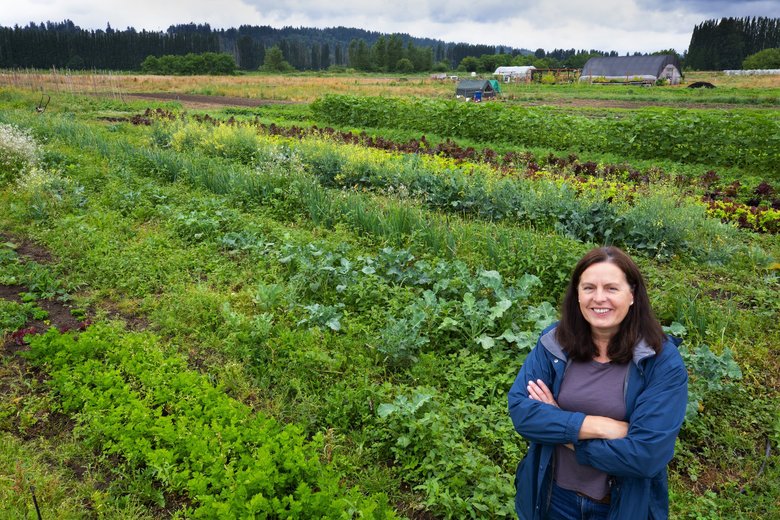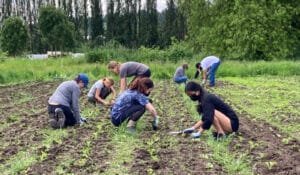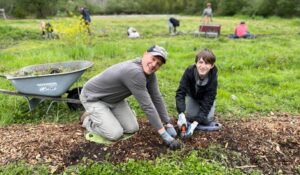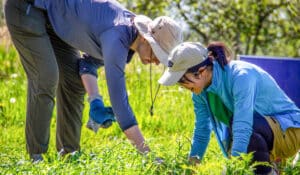
Adult Beverage Ordinance Unanimously Rejected by Growth Management Hearings
Adult Beverage Ordinance Unanimously Rejected by Growth Management Hearings
- posted on: June 6, 2020
- posted by: Robin Crowder
"*" indicates required fields

Hello all — Sharing this good news from Friends of Sammamish Valley:
In a sweeping decision, the WA State Growth Management Hearings Board (GMHB) invalidated the Adult Beverage Ordinance in a strongly worded, unanimous May 26th Order. The Board’s Order cites a dozen grounds for invalidation under the State Environmental Policy Act (SEPA) and the Growth Management Act (GMA) and faults the County repeatedly for ignoring the Ordinance’s potential environmental harm and impacts on infrastructure.

The Order represents a significant milestone for the preservation of local farming, open space, wildlife habitat, streams and rural residential character across King County. The Board sent a strongly worded and detailed message that development impacts on rural residential areas and farmland, including traffic, stormwater runoff and sanitation, need to be carefully studied to inform any changes to important zoning regulations.
The wording of the Board’s decision is notably direct. For example, the Board observes with clear disapproval that the County “failed to conduct an environmental review of the proposal at the earliest possible time”; “failed to disclose likely impacts on environmentally sensitive areas and increased demands on public infrastructure such as transportation and utilities”; and “declines to even acknowledge areas of potential impact and utterly fails to identify necessary areas of environmental review.”
The Board also recognized that while sponsors claimed the ordinance would “tighten up” regulations around winery, brewery, and distillery (WBD) businesses, it would actually have the opposite effect —legitimizing a group of existing adult beverage zoning code violators and opening up areas set aside for farming and rural residential uses across unincorporated King County to more of the same activities.
The Board’s decision is especially noteworthy because invalidation of city or county legislation is not common, reserved only for the most egregious cases. This decision was also rare in that it was rendered early in the appeal process.
Please take a moment to celebrate this massive victory in our efforts to preserve the Sammamish Valley and protected rural lands across King County. Many hundreds of you rallied together on a long list of tasks to make this happen including: getting on early morning buses to attend King County Council meetings; calling and emailing Councilmembers; researching environmental regulations; preparing and distributing communications materials; rallying like-minded friends and neighbors; and wading onto social media – not to mention the generous monetary donations to support all our efforts. Know that your written and verbal correspondence became part of the legal record which persuaded the Board. You had a very direct impact on the legal outcome.
There were many moments when it would have been very easy to give up hope in the face of well-funded efforts from narrowly and selfishly focused special interests, as well as the seeming indifference of County elected officials and bureaucrats. But our community banded together, built a solid case, stayed the course, and was rewarded at the Hearings Board. A very heartfelt THANKS to you all!
More Details
The Order was issued in response to our FoSV and Futurewise Dispositive SEPA Motion, which asked the Board to invalidate the Ordinance and remand it back to the County for environmental review. The Board did remand the Ordinance back to the County, as we were confident they would. But as mentioned above, invalidation of city or county legislation is rare and reserved for the most egregious cases. Invalidation was a huge win!
Invalidation means that, as of May 26, and until such time as the County potentially comes into compliance with SEPA requirements for an environmental study and passes all other legal hurdles, no businesses can be established under the now-invalidated Ordinance language that would have allowed for Demonstration Project Overlay A remote tasting rooms, large events centers, sham WBDs operating as retail outlets, and WBD facilities on lots as small as 2.5 acres.
Those sections of the Ordinance requiring WBDs to obtain business licenses from the County and establishing fines and penalties for code violations were left intact because they were not within the Board’s jurisdiction to review. However, the Board invalidated all aspects of the Ordinance that were within its jurisdiction, which included all significant sections.
You may recall that the County slid language into the Ordinance stating it intended to delay code enforcement for a minimum of twelve months or longer, at its discretion. We cited the intention not to enforce as a basis for invalidating the Ordinance in our original petition. The County filed its own dispositive motion asking the Board to throw out this part of our challenge saying it did not have “jurisdiction” to review it, which we countered. In the May 26 Order, the Board ruled that our issue on code enforcement is within their jurisdiction to review. [This is a big deal for potential future litigation.] But they declined to reach a decision on the merits of the motions at this time since the Ordinance was invalidated, and the issue is currently moot.
What’s Next
The County has several alternatives at this point. They could:
- Ask the Board to reconsider the decision. Success with this path is unlikely due to the strength of the Board’s decision.
- Appeal by filing a Petition for Review in Superior Court (following a motion for reconsideration).
- Decide to actually do an environmental review. The public would have the opportunity to weigh in on this process. A county-wide environmental review is a very time-consuming and expensive process and must be completed by Nov 6, 2020 per the Order, unless additional time is granted by the Board. Even if they were successful on SEPA compliance, our remaining challenges to the validity of the ordinance would be heard in a formal hearing before the Board. The Order suggests significant Board skepticism about whether the Ordinance or one like it could be found compliant with the GMA.
- Decide they have enacted enough legislation with regards to WBDs (they did get their much-desired business licenses).
- Write a new Ordinance that is narrow in scope. For example, they could amend their Home Occupation code regarding WBDs, where they do have some real issues.
We will be actively involved in these next steps with the County. Regardless of their path, we will demand the County immediately start enforcing code in order to deal with the nine well-documented, rogue violators in the Sammamish Valley. Code clearly states that sales are limited to products produced on-site in these rural locations. The violators all truck in alcohol produced elsewhere.
We will be speaking with the press as well as preparing a question and answer page on our website. You will continue to receive email updates as information becomes available. Please email questions or comments to contact@friendsofsammamishvalley.org.
Once again, thanks to everyone for all you have done over the past two years. Stay healthy, stay local, and stay tuned!
– The Friends of Sammamish Valley Team
Image from The Seattle Times 2019 article: Serena Glover, Friends of Sammamish Valley











 back to blog overview
back to blog overview








